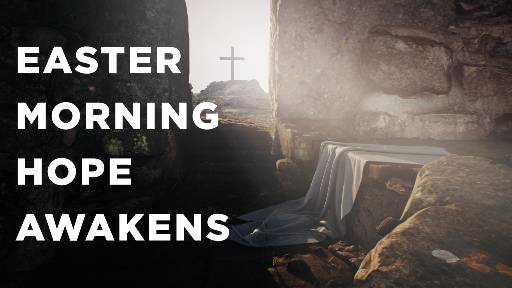-
Second Sunday After Epiphany (B C P). Series
Contributed by Christopher Holdsworth on Feb 15, 2025 (message contributor)
Summary: Sermons upon the Bible readings of the Book of Common Prayer.
Psalm 107:13-22, 2 Kings 4:1-17, Romans 12:6-16a, John 2:1-11.
A). SIN AND DELIVERANCE.
Psalm 107:13-22.
This reading begins and ends with a “crying out” to the LORD, His deliverance, and a call to praise.
In the first of the two examples here, the petitioners were portrayed as people who were held fast with iron chains in the darkest deepest dungeon, ‘in the shadow of death’ (cf. Psalm 107:10). It was their own fault that they were there (cf. Psalm 107:11)! ‘And there was none to help’ (cf. Psalm 107:12)!
“Then,” as our present reading begins, “they cried unto the LORD in their trouble, and He saved them out of their distresses” (PSALM 107:13). The answer to their prayer was an undeserved deliverance “out of darkness and the shadow of death” (PSALM 107:14a). The light of the Gospel broke into our lives, and we beheld the glory of God ‘in the face of Jesus Christ’ (cf. 2 Corinthians 4:6).
And “He brake their bands in sunder” (PSALM 107:14b). He sets us free from the condemnation of the law (cf. Romans 8:1). We are set free from the guilt of our sin by the sacrifice of Jesus. Sin has no more dominion over us (cf. Romans 6:14).
The refrain of this Psalm is to “praise the LORD for His goodness, and for His wonderful works to the children of men (literally, children of Adam)” (PSALM 107:15). He has literally “shattered” the gates of brass and broken the iron bars of our captivity asunder (PSALM 107:16).
As we come to our next word picture (PSALM 107:17-22), one strong contender for its Old Testament background is Numbers 21:4-9. There the complaint of the people of Israel was, ‘no food and no water, and our soul loathes this worthless bread’ (cf. Numbers 21:5). What an attitude to God’s gracious and miraculous provision!
The indictment against such “fools” (PSALM 107:17), is that “their soul abhorred all manner of food” (PSALM 107:18). The response of the LORD to “their transgression, and to their iniquities” is to send “affliction” (PSALM 107:17), causing them to “draw near to the gates of death” (PSALM 107:18). In the example we have cited, this took the form of a plague of fiery serpents, which ‘bit the people and caused many of the people of Israel to die’ (cf. Numbers 21:6).
But then the people asked Moses to pray for them (cf. Numbers 21:7). This could correspond to their “cry unto the LORD in their trouble” (PSALM 107:19). Not only did the LORD come up with a scheme to relieve their present distress (the serpent on a pole, cf. Numbers 21:8-9), but also a picture of a much grander scheme, for a more universal salvation, with Christ on the Cross at its centre (cf. John 3:14-17).
Not all afflictions come as a direct result of some specific sin - but some do. Whichever way, when we are afflicted, the only one way to turn is to God Himself, through the Lord Jesus Christ. “Then He saved them from their distresses. He sent His word, and healed them, and delivered them from their destructions” (PSALM 107:19-20). ‘And so, if a serpent had bitten anyone, when he looked at the bronze serpent, he lived’ (cf. Numbers 21:9).
We conclude our little picture with a call to those who have been thus redeemed, by the blood of the Lamb (cf. 1 Peter 1:18-19), to “praise the LORD for His goodness, and for His wonderful works to the children of men (literally, children of Adam)” (PSALM 107:21). This is something of a refrain throughout this Psalm.
“And let them sacrifice the sacrifices of thanksgiving and tell of His deeds with songs of joy” (PSALM 107:22). Telling of his deeds is a joy, but sometimes our telling of our testimony is sacrificial. However, we must share the good news: “His mercy” DOES “endure forever” (cf. Psalm 107:1).
B). THE WIDOW AND THE GREAT WOMAN.
2 Kings 4:1-17.
These accounts show Elisha to be a worthy successor to Elijah, and his miracles anticipate the compassionate ministry of Jesus.
1. The Widow.
We are confronted first with “a woman of the wives of the sons of the prophets” (2 KINGS 4:1), who cried out to Elisha concerning the sudden destitution which had befallen her and her two sons upon the death of her husband. She reminds Elisha that her husband “did fear the LORD” - so that whatever debt he may have left was not due to any wrongdoing on his part. However, the creditor was at the door, ready to take her two sons away from her as “bondmen.”
Now, such practice was allowed in Israel, as in other parts of the world. Israel, however, had the most compassionate laws to alleviate such a dreadful circumstance. After all, why should one Israelite be enslaved by another when the LORD had delivered ALL the Israelites out of bondage in Egypt (cf. Leviticus 25:39-43)?

 Sermon Central
Sermon Central



